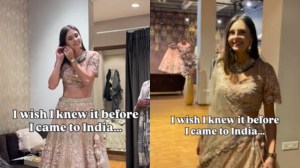Commonwealth leaders agree to be more proactive on human rights
But leaders have still to address tougher measures some warn CHOGM must take to remain relevant.
Leaders of the Commonwealth group of mostly former British colonies on Friday took tentative steps to tighten up on human rights abuses by members but have still to address tougher measures some warn the group must take to remain relevant.
Britain’s 85-year-old Queen Elizabeth opened the meeting of leaders of the 54 states of the Commonwealth,home to a third of the world’s population and five of the G20 leading economies but struggling to make much impact on global policies.
Australian Prime Minister Julia Gillard told reporters that the leaders had backed an internal report calling for a more proactive stance in defending human rights.
That report and all of its reform proposals and recommendations,has been adopted … It means that this meeting has already acted to embrace reform and strengthening of the Commonwealth,she said.
The purpose of these reform proposals is to enable the Commonwealth to act when a country is veering off course in terms of democratic values and the rule of law,rather than waiting until a country has gone to a grossly unacceptable stage,and leaders only having the option of suspension or expulsion in front of them.
No country has ever been expelled from the Commonwealth,though some have been suspended following military coups.
The leadup to the summit has been dominated by pressure to take a stronger line on human and political rights abuses.
The summit still has to grapple with a more contentious eminent persons report which warns that without a much tougher stand,the Commonwealth could slide into irrelevance.
A key suggestion in the confidential report,seen by Reuters,is for the group to establish a human rights commissioner — something some members oppose.
Much of the debate has focused on Sri Lanka and international demands that it allow an independent inquiry into accusations of war crimes during its 25-year civil war,especially in its final months in 2009.
Sri Lanka says it will wait for the results of its own investigation next month,calling the pressure over human rights a propaganda war waged by the defeated Tamil Tigers.
Canada,home to a large ethnic Tamil community,has said it will boycott the 2013 Commonwealth summit in Sri Lanka,unless the host country improves its human rights record.
Today,Commonwealth leaders are faced with a choice — reform the Commonwealth so that it can effectively address human rights violations by its members,or risk becoming irrelevant,said Madhu Malhotra,Amnesty International’s Asia-Pacific Deputy Director.
ABORIGINES CLEANSE OPENING CEREMONY
Aborigines cleansed the opening ceremony by waving smoke from burning grass over leaders as they arrived. Local Noongar Aborigines welcomed the leaders to their traditional homeland.
In a stark reminder of the clash of cultures,Aborigines refer to British white settlement of Australia as the invasion.
Smaller countries within the group,many at risk from the effects of global warming,are pressing for a strong statement ahead of next month’s international summit of climate change in the South African city of Durban.
There have also been calls on leaders to help end the practice of child brides. Twelve of the 20 countries with the highest rates of child brides are in the Commonwealth.
And health advocates say laws in 41 Commonwealth states making homosexuality a crime breached human rights,hindering the fight against HIV-AIDS. Commonwealth states represent 60 percent of the world’s HIV-AIDS population.
Queen calls for bold reforms
Amid global financial turmoil and uncertainty,Queen Elizabeth II today sought bold reforms to usher in new vibrancy for making the Commonwealth fresh and fit as a key summit of 54 countries linked to the erstwhile British empire opened here.
Vice President Hamid Ansari is representing India at the biennial Commonwealth Heads of Government Meeting,or CHOGM,which is discussing ways to tackle tough challenges posed by the global financial crisis,food security,climate change,trade and human rights issues.
The meeting is being held in this western Australian city amid tight security.
It was an all-woman affair at the Perth Convention and Exhibition Centre when outgoing CHOGM chair and Prime Minister of Trinidad and Tobago Kamla Persad-Bissessar handed over charge to incoming chair,Australian Prime Minister Julia Gillard,in the presence of the Queen.
This Commonwealth meeting is,for its part,the perfect opportunity to address these issues and find responses for today’s crises and challenges, the Queen said in her opening address.
The 85-year-old monarch also said the meeting would bring new vibrancy to the Commonwealth forum.
Almost a decade later we find ourselves confronting new challenges — insecurity and uncertainty in finance,food supply,climate change,trade and development, she said. This meeting promises to bring new vibrancy to the Commonwealth.
The Queen thanked the Eminent Persons Group,a collection of prominent thinkers who have proposed a blueprint for reform of the institution.
I wish heads of government well in agreeing further reforms that respond boldly to the aspirations of today and that keep the Commonwealth fresh and fit for tomorrow.
She urged leaders not to forget the Commonwealth was a body not just of governments but of people.
That is what makes it so relevant in this age of global information and communication, she said,adding,We must continue to strive together to promote that theme in a lasting way beyond this year.
She concluded by reciting an Aboriginal saying: We are all visitors to this time,this place. We are just passing through. Our purpose here is to observe,to learn,to grow,to love,and then we return home.
The lavish opening ceremony featured a diverse procession of heads of government,including 25 Prime Ministers,10 Presidents,five Vice Presidents,two Deputy Prime Ministers,one High Commissioner,a lord and the Sultan of Brunei.
The Queen’s plea for reform was echoed by Commonwealth Secretary General Kamalesh Sharma,who said renewal was needed to make sure the grouping was resilient and relevant for the future.
He also revealed it was the Queen who had described the Commonwealth as the original world-wide web.
Australian Prime Minister Julia Gillard,also host of the summit,cited economic concerns and food security as key issues in her address.
How do we best pursue our timeless values in a world of change? Gillard said.
Let us make CHOGM 2011 memorable for answering this question. Memorable for being the meeting that gave the Commonwealth the direction it needed at a time of global uncertainty and risk.
- 01
- 02
- 03
- 04
- 05































